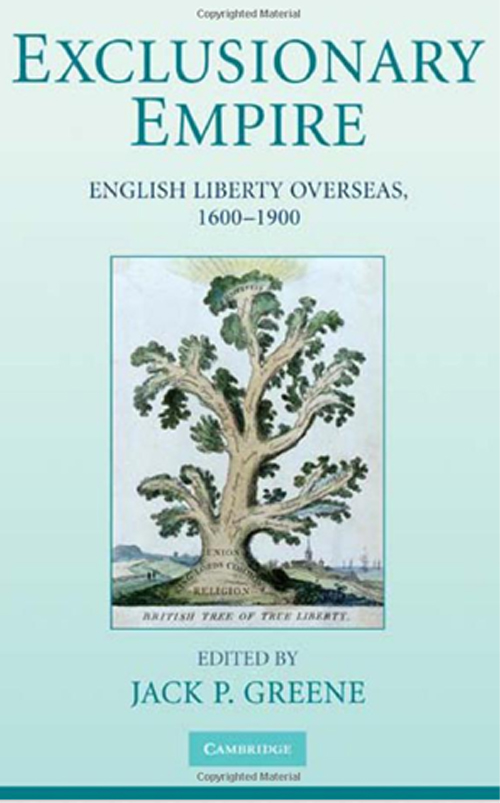English Liberties Overseas 1600-1900
Review

Exclusionary Empire: English Liberties Overseas 1600-1900 by Jack P. Greene, (ed.)
(Cambridge University Press), 2009 305pp., £16.99 paper, 978-0-521-13270-1
The development of a comparative approach to British imperial history has been an important development in historiography over the past five years. This was especially evident in the recently published Replenishing the Earth by James Belich, one of the contributors to this excellent volume.
The encouragement of liberty has been an important feature of Britain's imperial expansion since the early seventeenth century and the contributors to this volume examine the varied, contrasting and often paradoxical results of Britain's export of their freedoms round the world. This parallels, though on a much broader canvas, my own work on the subject published as Three Rebellions: Canada, 1837-1837, South Wales, 1839 and Victoria, Australia 1854, (Clio Publishing), 2010. The focus of Exclusionary Empire is on particular areas of the settler empire especially colonial North America, the West Indies, Ireland, the early United States, Canada, Australia, New Zealand and South Africa and one non-settler colony, India.
The critical issue, evident in colonial resistance and rebellion, is how far those liberties were confined to the independent white male British and Protestant sections of colonial society and what the consequences of that were. In Lower Canada, for example, it was the refusal of the colonial authorities in the colony and in London to bring the long-established French Canadian majority within the political structure that led to resistance for over a decade and ultimately when all other routes were exhausted to rebellion.
This raised the question of whether British constitutional structures and ideas could be transposed to the colonies and how far the colonial structure that evolved in the 1840s and 1850s could accommodate imperial and colonial aspirations. The essays in this volume are very well written, interesting and raise questions about the nature of governance that retain their importance. It will be of immense value to teachers and students and deserves a wide audience.

